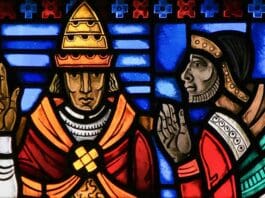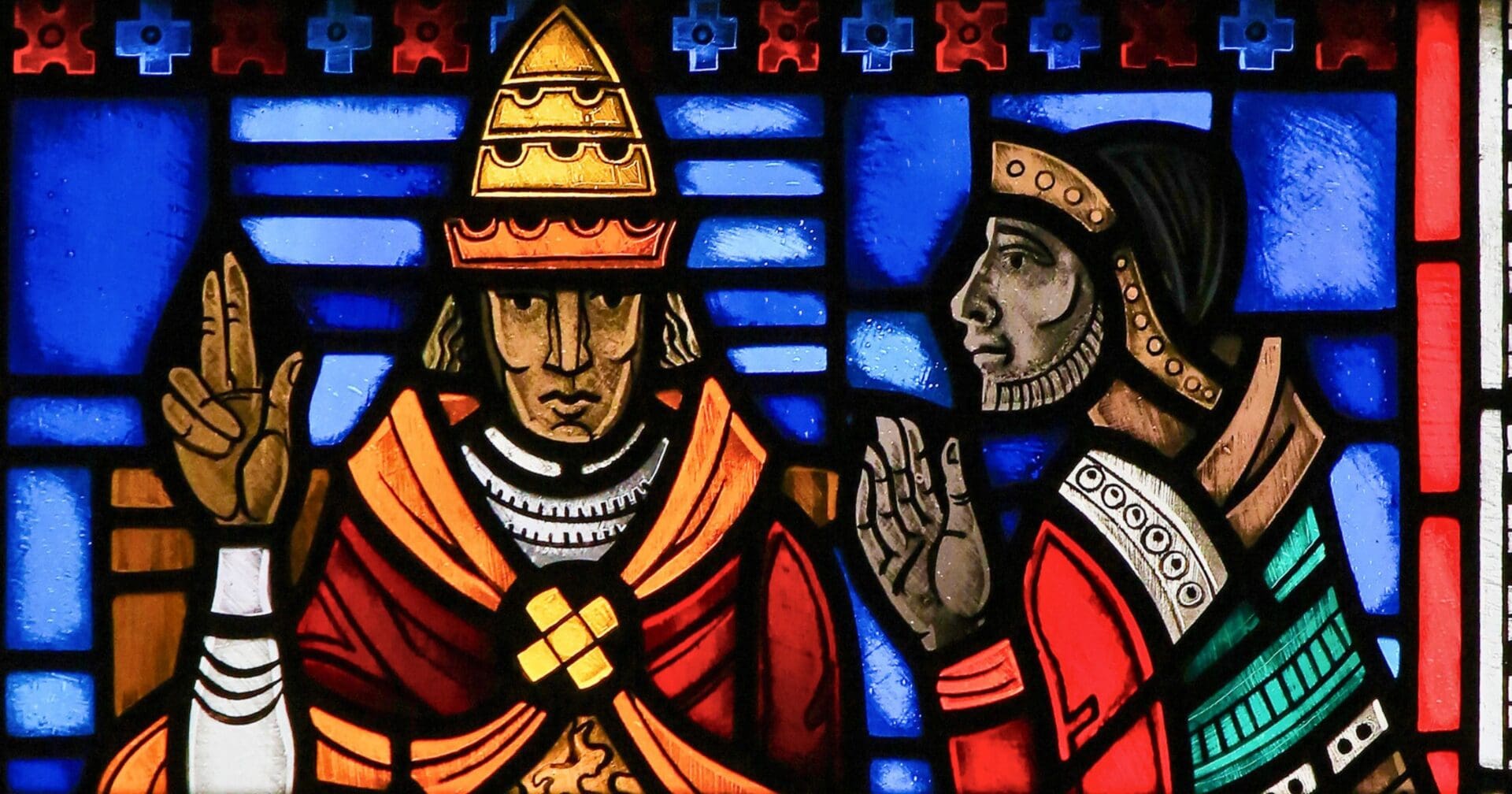
Born on 21 June 1002 in Egisheim, near Colmar on the borders of Alsace, Bruno of the noble family related to Emperor Conrad, grew up under the care of his pious parents, Hugh and Heilewide. This early environment shaped his devout character, evidenced by his distress over using a stolen book during his childhood. Educated under Berthold, Bishop of Toul, Bruno quickly distinguished himself both in academics and charisma, endearing him to his peers.
By 1017, Bruno was a canon at St. Stephen’s in Toul, where he mediated with the irascible Bishop Herimann’s successor. His cousin Conrad II’s accession in 1024 saw Bruno enter court life, and despite his military role during Conrad’s campaign in Italy, he maintained his ecclesiastical character, eventually becoming Bishop of Toul in 1027. His episcopacy was marked by his adept handling of both civic peace and ecclesiastical duties amid regional strife and famine.
Bruno’s reputation for virtue led to his selection as pope after the death of Damasus II in 1048. Reluctant yet duty-bound, he accepted, taking the name Leo IX. His pontificate was vigorous and reformative; he traveled extensively across Europe to combat simony and clerical immorality, significantly impacting church reform which Gregory VII would continue.
In 1049, at a synod in Reims, he addressed various ecclesiastical issues, including excommunicating the Archbishop of Compostela and forbidding a contentious marriage. His reform efforts were recognized widely, bringing him into conflict with both secular and ecclesiastical authorities.
Leo’s later years were dominated by his dealings with the Normans in Southern Italy, where he endeavoured to mediate peace but ultimately led a military campaign against them, resulting in his capture in 1053. Despite this defeat, he was treated with respect and continued to exert influence over the Norman leaders.
The challenges of his papacy also included dealing with the schism initiated by Michael Caerularius of Constantinople, which culminated in the East-West Schism shortly after Leo’s death on 19 April 1054. His efforts in England included interactions with King Edward the Confessor, reflecting his broad geopolitical influence.
Leo IX’s papacy, characterized by both his deep piety and his vigorous public reform efforts, left a lasting impact on the medieval Church, evident in the continuation of his policies by successors and his veneration as a saint after his death. His life’s work show his commitment to a moral and unified Christian Europe.
Editorial credit: jorisvo / Shutterstock.com
The post Pope Saint Leo IX appeared first on uCatholic.
Daily Reading
Wednesday of the Thirty-fourth Week in Ordinary Time
Reading 1 RV 15:1-4 I, John, saw in heaven another sign, great and awe-inspiring: seven angels with the seven last plagues, for through them God’s fury is accomplished. Then I…




